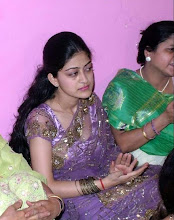Clothes are usually stitched by hand. Much care and attention will be giving to the men outfit for a neat finish. Women’s dresses are always long and loose with room to grow up, gain weight or get pregnant. Sometime a pleat around skirts and sleeves are sewed for a better fit and opened later needed for the fabric shrinkage or growing taller. Although Afghan women are skilful in embroidery and color coordination, they don’t use matching threads, or even one color to finish a garment. With limited access in the villages, they have one or two color threats at home for all their daily use. At times, they tear a piece of the same fabric to pull the threats, twine and sew with it.
Women’s basic outfit consists of: Dress, trousers, heads covering piece and shoes.
Additional clothes are hat, Chadari (burka), dulaq (pants over trousers), vest, and shawl (Shawl and Chadar is different). Shawl is thicker made of wool and chadar is lighter made of silk, cotton or chiffon. Sometimes, women wear a shawl over the chadar (when cold or in public.)
Men’s basic outfit consists of Tunic-shirt, pants and head covering (Turban or hat) and shoes.
Additional clothes are Chapan, vest, shawl (cotton or wool depending on the season), Posteen (sheep skin long cloak and very long sleeves with embroidery borders worn in cold areas, posteencha (sheep skin vest with embroidery), Chamooch (knitted woolen stockings with leather soles worn with shoes in cold snowy areas, Patoo/Kaish (blanket),
As for Men’s basic outfits, solid colors and plain designs are common for the two-piece tunic-shirt and pants. Only in Kandahar they use embroidery for the top front of the shirt. The matching shawl will have the same design and color as tow side or four side borders. Other areas have different collar style or different fabrics.
Rebuilding Afghanistan: Empowering through Education - UCLA (February 26, 2011)
|





.jpg)














.png )
0 comments